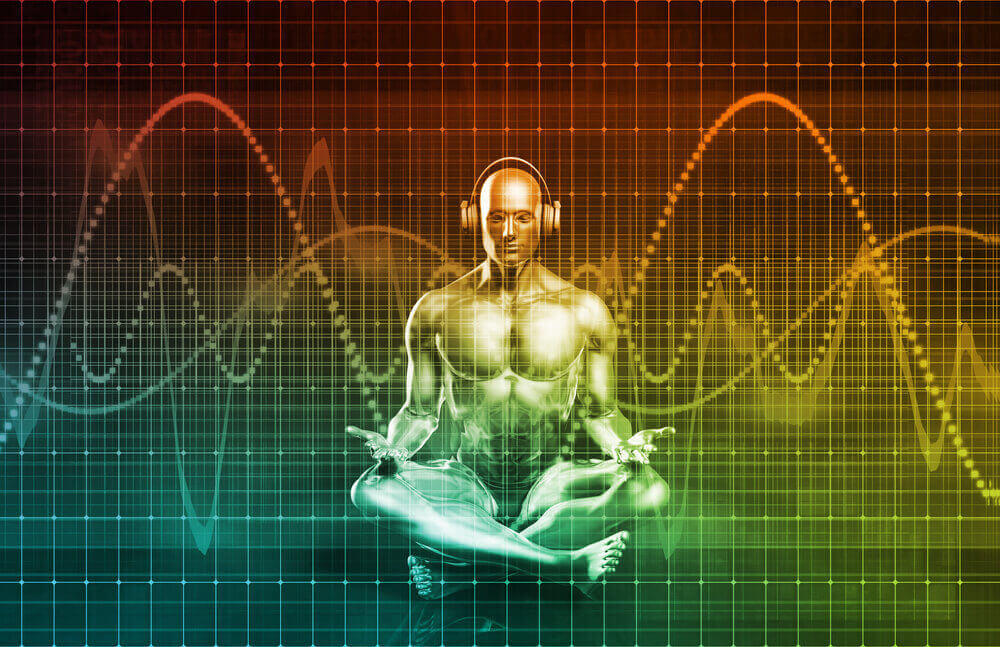Binaural Therapies and Sleep

A wide range of musical and aural (sound-related) therapies are out there to help you get a better night’s sleep. Some auditory therapies are scientifically sound, and others are modern-day quackery.
Binaural Therapy
Binaural therapies are designed to stimulate particular brain waves in the human brain through the use of various tones. One tone, vibrating at a given frequency, will be played into the left ear and another tone, operating at a different frequency, will be played into the right ear.
The sound is usually heard as a “binaural beat”—a rhythmic sound. The result is often an “entrainment” of brain waves to a frequency mid-way between the two audible tones—a frequency following response that can activate certain areas of the brain or stimulate brainwaves within predictable ranges. Both hemispheres of the brain will “resonate” at a wavelength mid-way between the frequency played in the left ear and the frequency played in the right ear.
The phenomenon is real. But the theory is sketchy. Binaural beats are thought to provide people with the means to encourage particular brainwave patterns—either to stimulate learning and memory with alpha waves or to instill a sense of calm with theta waves. The question is, does it work?
The Trouble With Binaural Therapies
There is some real science behind the use of binaural therapy to encourage relaxation. A 2007 study conducted by the National College of Natural Medicine in Portland, Oregon found a statistically significant decrease in anxiety and increase in overall “quality of life” in test subjects that undertook binaural beat therapy daily for 60 days. Biochemically, patients showed a decrease in both insulin-like growth factor-1 and dopamine.
Beyond some scientific evidence for decreased anxiety, most evidence for the other claimed effects of binaural therapy is anecdotal. Less well-documented claims include increased brainpower (easier learning), extra energy, decreased need for sleep, and even out-of-body experiences or telepathy. However, another small study by the same group on four healthy adult individuals actually showed an increase in the instance of feelings of depression and a decrease in recall time.
Binaural Beats and Sleep
If you’re looking for a potentially game-changing sleep therapy, binaural therapy may be just what you need. The best evidence for binaural therapy relates to relaxation, inducing brainwave states conducive to falling asleep. While binaural beat therapies won’t necessarily put you to sleep, they may be beneficial just before bed to help you settle into a relaxed state that will let you fall asleep quickly and deeply.
The Bottom Line
Some people swear by binaural beats for even the most far-fetched claims. If it works for you, go for it… but don’t fall for some slick sales pitch that will take your money and leave you wishing you’d listened to your better judgment.
Author Bio: +Michelle Gordon is a sleep expert who researches and writes about sleep and health, and is an online publisher for the latex mattress specialist Latexmattress.org.


